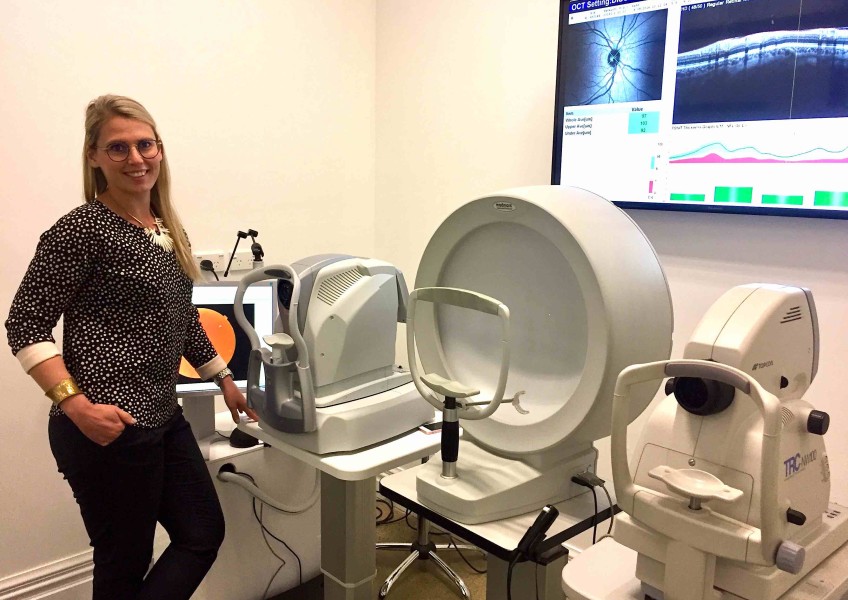Private eye specialist cautions patients not to be victims of DHB treatment delays

A Queenstown Lakes optometrist is urging people to be proactive about eye health, instead of risking avoidable blindness due to delays with the public health system.
The Health and Disability Commissioner recently criticised the Southern District Health Board (SDHB) following a Mataura patient going blind – resulting from its failure to provide timely follow-up appointments.
Danielle Ross, principal optometrist at OCULA in Queenstown and Wanaka, says qualified optometrists should be the first port of call as some serious eye diseases can be treated – and blindness avoided. Danielle Ross is pictured above with diagnostic equipment, including an OCT eye scanner.
“A patient under the care of the DHB is advised how often they need to be reviewed – for example, in six months’ time. Unfortunately, with an ever-increasing demand, patient reviews are being pushed back. So, often, a six-month check-up will be recalled much later – sometimes as long as nine to 12 months,” Ross explains.
“So my advice would be, if you are unable to get an appointment with the DHB within a month or so of your advised recall, and you’re concerned about your eyes, see a qualified optometrist.”
Ross specialises in primary eye care, from vision testing and therapy, to detecting eye abnormalities and the diagnosis, treatment and management of vision changes and certain eye diseases.
“I see patients on a daily basis who need an eye surgeon, but they don’t have private health insurance and they don’t meet the criteria to be accepted by the public system. In desperate situations, I can request funding through charitable trusts or that a private surgeon sees patients on a pro bono basis, but there are still a large number of cases falling between the gaps.”
Ross says anyone experiencing blurred vision or change in vision, pain or discomfort, flashes of light (flashes), floating dots (floaters), reduced field of vision – either intermittent or constantly – should visit their optometrist urgently. People with a family history of glaucoma or a personal history of an eye problem should be checked at least every 12 months.
The New Zealand Optometrists and Dispensing Opticians Board requires a specific battery of tests for glaucoma co-management, which includes Medmont visual field examination, optical coherence tomography (OCT) scanning, Goldmann intraocular pressure measurement, and as well as a number of other supplementary tests.
“In the Queenstown region, we are the only clinic with this level of testing available,” she says.
“We will do everything possible to ensure no patient loses their sight unnecessarily. Preventing avoidable blindness is something I’m really passionate about.”
Ross says she has a good relationship with ophthalmologists at the SDHB and – like all qualified optometrists – has the ability to triage cases and have the hospital see patients sooner if needed.
“When I get a case that I believe requires sooner attention, especially if it is sight-threatening, the SDHB is fantastic at seeing the patient more quickly.” #
























